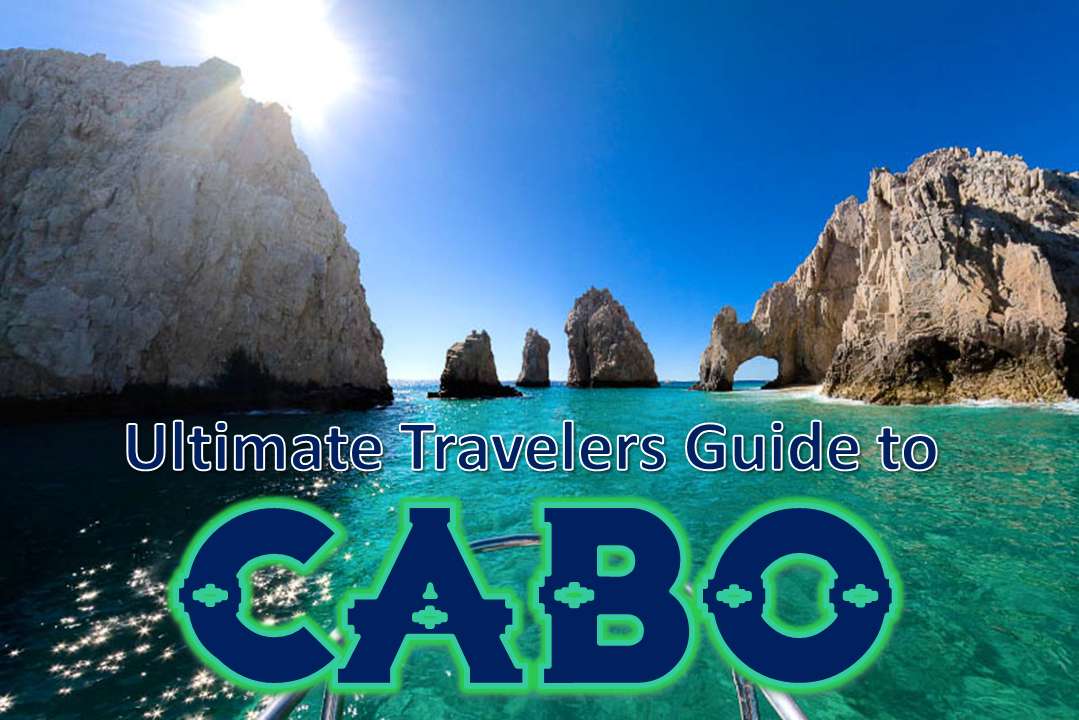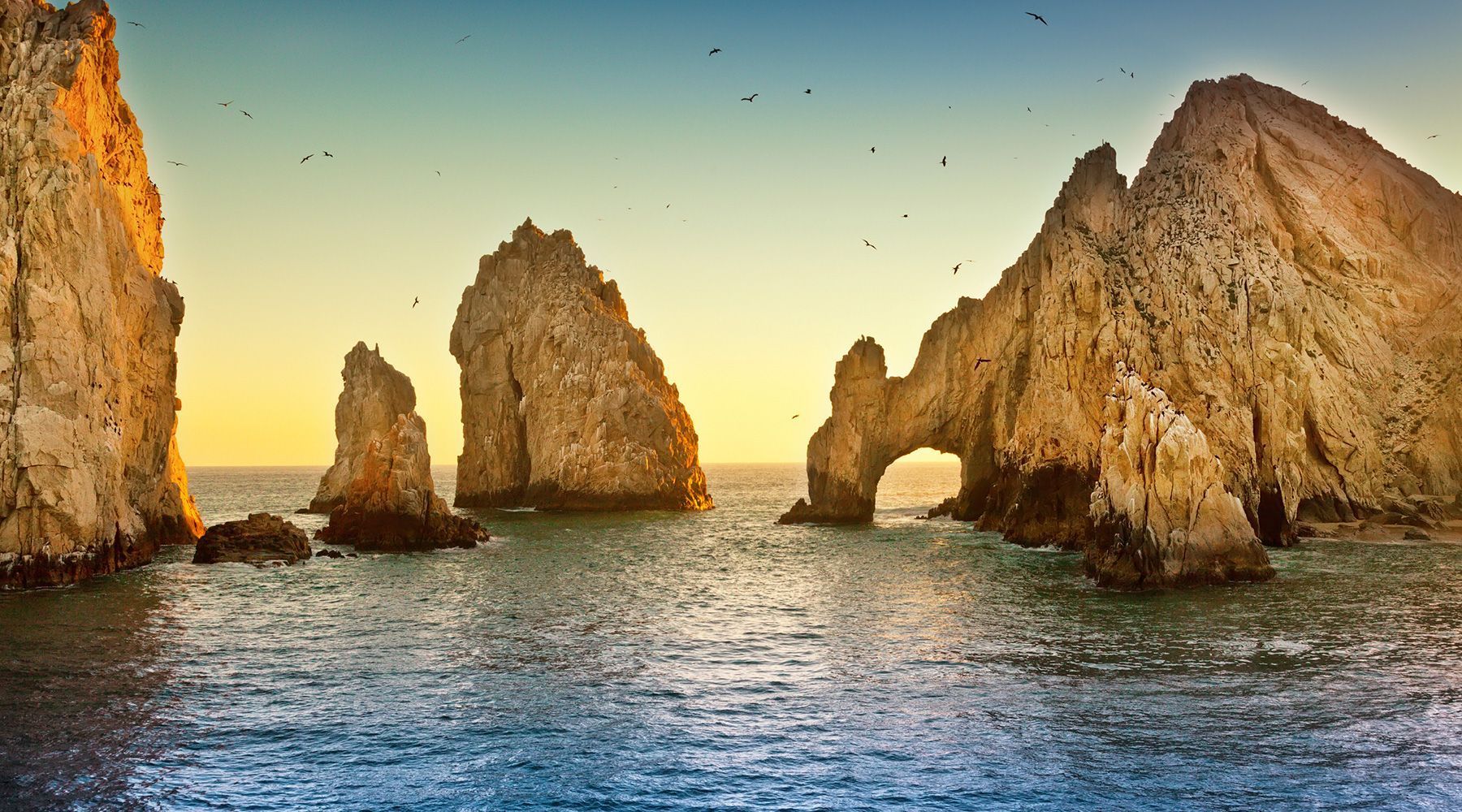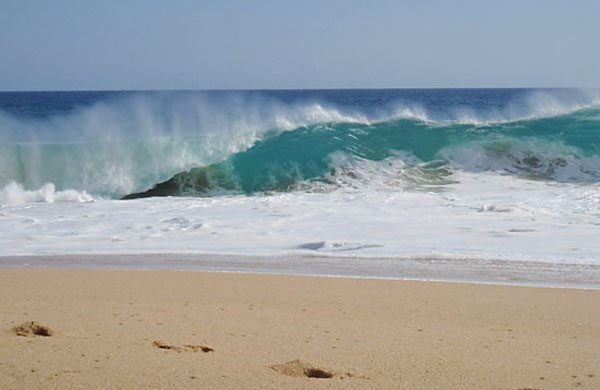Forty years later, this destination on the southernmost tip of Baja California is still known for its decadence — just take a look at the sprawling golf courses or deluxe villas. But the elitist pretense has dwindled: Days in the spa are just as coveted as evenings at a beach side watering hole. And there's a good chance that you'll see debutantes and college freshmen sunning themselves side by side on the same stretch of sand.
Below, we offer the ultimate guide for planning your upcoming Cabo vacation, please take our advice and prepare yourself to experience the best that Mexico has to offer.
GETTING INTO CABO, Mexico:
Avoid unforeseen trouble with customs and local authorities. All travelers to Mexico need a valid passport, or, if applicable, an alien registration card, Air NEXUS card or U.S. Coast Guard Merchant Mariner document. U.S. citizens visiting Mexico for no more than 72 hours and remaining within 25 kilometers of the border do not need a permit to enter. Those wishing to travel past the 25 kilometer border area of Mexico must be properly documented.
TOURIST CARDS
All U.S. citizens visiting Mexico for tourism or study for up to 180 days need a document, called a tourist card in English or FMT in Spanish, to enter and leave Mexico, The airlines will provide you with one prior to landing or https://www.inm.gob.mx/fmme/publico/en/solicitud.html . Upon entering Mexico, retain and safeguard the pink copy of your tourist card so you may surrender it to Mexican immigration when you depart. You must leave Mexico before your tourist card expires or you are subject to a fine. A tourist card for less than 180 days may be revalidated in Mexico by the Mexican immigration service (Direccion General de Servicios Migratorios).
TRAVELING WITH MINORS
A child under the age of 18 traveling with only one parent must have written, notarized consent from the other parent to travel, or must carry, if applicable, a decree of sole custody for the accompanying parent or a death certificate for the other parent. Children traveling alone or in someone else's custody must have notarized consent from both parents to travel, or if applicable, notarized consent from a single parent plus documentation that the parent is the only custodial parent.
WHAT YOU MAY BRING INTO MEXICO
Customs Regulations:
Tourists should enter Mexico with only the items needed for their trip. Entering with large quantities of an item a tourist might not normally be expected to have, particularly expensive appliances, such as televisions, stereos, or other items, may lead to suspicion of smuggling and possible confiscation of the items and arrest of the individual.
If you travel with prescription medications, bring copies of those prescriptions and only enough medication to last the duration of your stay. Mexican authorities can arrest a traveler if they suspect the person is carrying more medicine than they need for several days' use. If you have traveled with firearms previously, double check your luggage before packing to see that it contains no gun paraphernalia whatsoever; Mexican authorities can detain you for bringing so much as a bullet into the country, according to the State Department. Even carrying a pocketknife can result in legal trouble for travelers arrested for a separate offense.
ARRIVE BY AIR
The location of Cabo San Lucas 1,000 miles south of Tijuana, on the tip of a peninsula makes flights to the San Jose Del Cabo Airport the most convenient way of arriving. Depending on where you're coming from in the United States, you may be able to fly to Cabo directly or switch planes in Mexico City. Ferries from Mexico's mainland can take hours to cross the Sea of Cortez, and they operate not out of Cabo San Lucas but out of La Paz, about two hours to the north.
Airport Transportation
Los Cabos International Airport:
The airport is about seven miles (11km) north of San Jose del Cabo and about 30 miles (48km) from Cabo San Lucas. Round trip transportation is provided by some hotels, if not included in your vacation package, if not, please be aware that you have to arrange your private transportation prior to your arrival, otherwise your only option will be to take a local taxi at the airport.
FOR MORE INFORMATION ABOUT AIRPORT TRANSPORTATION, PLEASE CONTACT US AT https://www.insideloscabos.com/contact-us or +1-877-401-1796
General Tourist Information
HEALTH
Health problems sometimes affect visitors to Mexico. Information on health precautions can be obtained from local health departments or private doctors. It is wise to review your health insurance policy before you travel. There are short-term health insurance policies designed specifically to cover travel.
Most hotels offer purified water, but it is always advised to drink bottled water. Be aware of ice cubes (sorry, this includes Margaritas) that may not have been made with purified water Vegetables and fruits should be peeled or washed in a purifying solution. A good rule to follow is if you can't peel it or cook it, do not eat it. Diarrhea may benefit from antimicrobial treatment which may be prescribed or purchased over the counter. Travelers should consult a physician, rather than attempt self-medication, if the diarrhea is severe or persists several days.
CURRENCY
The Mexican government permits tourists to exchange dollars for pesos at the fluctuating free market rate. There are no restrictions on the import or export of bank notes and none on the export of reasonable quantities of ordinary Mexican coins. However, gold or silver Mexican coins may not be exported.
Take travelers checks with you because personal U.S.checks are rarely accepted by Mexican hotels or banks. Major credit cards are accepted in many hotels, shops, and restaurants. An exchange office (casa de cambios) usually gives a better rate of exchange than do stores, hotels, or restaurants.
BANKS AND CURRENCY EXCHANGE INFORMATION
The best rates of exchange for Mexican pesos can be found at banks, although the airport exchange desk is generally not a bad rate compared to the hotel rates; banks and airport exchange offices do not charge exchange fees. It is not a good idea to change money in any upmarket hotel here, as they typically do not offer competitive market rates. Street "cambios" or exchange booths offer slightly less favorable rates, but keep longer hours. You can pay in U.S. dollars most of the time, but your change will probably be in Mexican pesos, and at unfavorable rates!
SHOPPING
Los Cabos offers a variety of items that can be purchaced. You'll find your best buys on Blankets, Silver & Ceramics. BARGAIN! BARGAIN! Most merchants will bargain with you. Don't be afraid to offer a lower amount than given to you or a discount on purchasing multiple items. It is better to do your shopping when the cruise ship is not in town, you'll get more bargining power.
A quick note about Glazed Ceramics: Analysis of many ceramic pieces from Mexico has shown them to contain dangerous levels of lead. Unless you have proof of their safety, use glazed ceramics purchased in Mexico for decorative purposes only.
TELEPHONE CALLS
Dial 00, 1, the 3-digit area code, and the 7-digit number. From there, to make a call, dial the Mexican exit code (00), the country code for the US (1), the area code of the number you’re trying to call, and the number itself. Talk for as long as the airtime that you purchased allows!
- For example, the final number you will dial to USA will look something like this: 00 1 (123) 456-7890.
TIPPING
In Mexico, it is customary to tip 10 percent in restaurants, and you may also give a couple of dollars to any passing band whose playing is particularly pleasing. However, the American custom of tipping 15 to 20 percent is practiced at international resorts, including those in Los Cabos. Housemaids in hotels may be covered by an all-inclusive charge, but welcome US$2-$3 tips per night, and don't forget to hand over something small to the little boy who runs to clean your windshield or who fills your car up with gasoline for you. Mexicans always tell you that tipping is not expected; it may, however, be well deserved and they always thank you.
Protect Yourself
Traffic presents one of the biggest dangers to tourists in Cabo, according to Cabo Source. Pedestrians should use caution while crossing the streets, as the local style of driving is fast and aggressive. Pedestrians also should observe the condition of the sidewalks to avoid trips and falls; sidewalks may have cracked and uneven surfaces or holes where the covers for water access have been removed. Cabo San Lucas has a reputation as a raucous party town, and Trip Advisor recommends taking standard precautions accordingly. These include traveling in groups, especially at night; watching your drinks; accepting no drinks from strangers; carrying as little cash as possible; and drinking bottled water to avoid dehydration. The State Department advises keeping an eye on bartenders and bar staff as well. Resort-town clubs have been known to slip drugs into customers' drinks. And as in any resort town, beware of pickpockets. Keep your wallet in your front pocket, and carry your pocketbook close to your body.
Behave Yourself
Don't become a criminal yourself; while Cabo's party atmosphere might make you believe anything goes, that's not the case. Mexican authorities do not tolerate excessive drinking and disorderly behavior. It is illegal to disturb the peace, act in a lewd or indecent way, litter, drive drunk, drink on the streets or on public transportation, or make foul or insulting remarks to others. The penalties for drug possession and use are especially severe—authorities can hold you for a year before your case is even tried.
Avoid Pacific Swimming
Swim at your hotel pool or on the Eastern side of the peninsula. Cabo's Pacific waters are beautiful and blue, but they're also dangerous. Riptides and rogue waves have drowned even the strongest open-water swimmers. Los Cabos Guide recommends against swimming in any Pacific beaches in Cabo, especially Playa del Amor, Divorce Beach and Playa Solmar. The State Department also advises caution in renting water vehicles, as many fleets are poorly kept and under-insured. Read rental contracts carefully, and ask the rental company to explain clearly what you may and may not do. Use such vehicles cautiously; you can be arrested and detained if you damage someone else's property.
RETURNING TO THE UNITED STATES
You must present the pink copy of your tourist card at your point of departure from Mexico.
The U.S. Customs Service currently permits U.S. citizens returning from international travel to bring back $400 worth of merchandise, including 1 liter of alcohol, duty free. The next $1,000 worth of items brought back is subject to a duty of 10%. In addition to U.S. Customs regulations, be aware that some U.S. border states (most notably, Texas) have imposed state restrictions on liquor, wine, and beer imports from Mexico. If you are planning to bring back alcoholic beverages, inquire about these restrictions from the liquor control office of the state through which you plan to return.
MEXICAN HOLIDAYS
Banks, government offices and many businesses are closed on these days and hotels fill up quickly:
Jan 1: New Year's Day
Feb 5: Constitution Day
Mar 21: Birthday of Benito Juarez
March-April (varies): Holy Week Celebrations, Good Friday through Easter Sunday
May 1: Labor Day
May 5: Cinco de Mayo (Anniversary of Battle of Puebla, 1862)
May 10: Mother's Day
Sep 16: Independence Day
Oct 12: Dia de la Raza
Nov 2: President's State of the Nation Address
Nov 2: Dia de los Muertos (Day of the Dead)
Nov 20: Anniversary of the Mexican Revolution
Dec 25-Jan 2: Christmas Week celebrations




Comments
Post new Comment